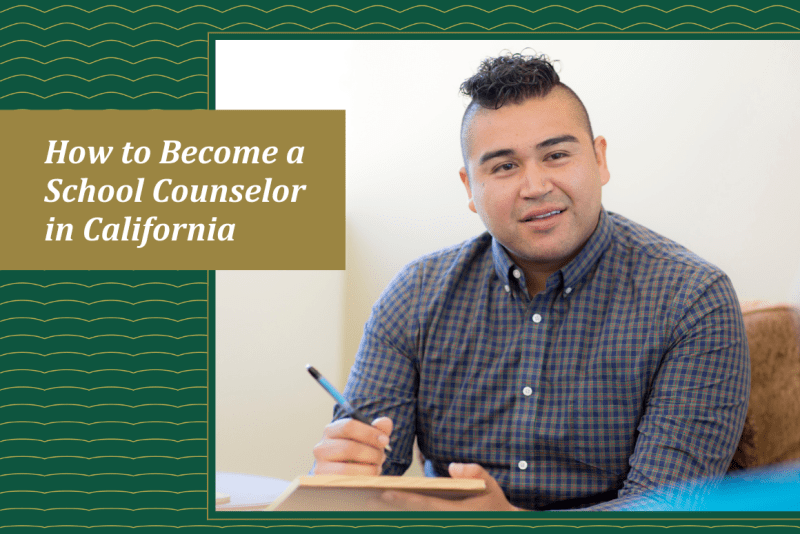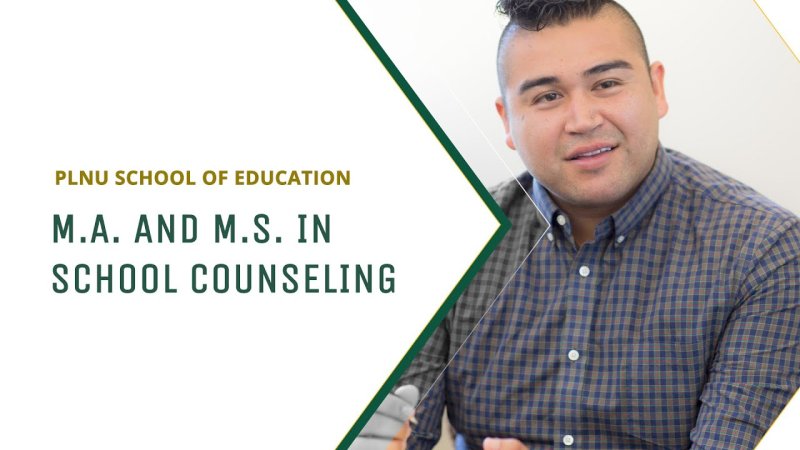
School counselors play a crucial role in helping students navigate academic challenges, develop social skills, and achieve their full potential. In California, where the demand for qualified school counselors continues to grow, these professionals make meaningful impacts in students' lives every day.
California has made significant investments to expand access to school counseling services across the state — increasing the average number of counselors per high school by 0.7 and reducing student-to-counselor ratios by over 150 students. With ongoing initiatives to improve student mental health support and academic guidance, now is an excellent time to consider this rewarding career path.
Here's what you need to know about becoming a school counselor in California, including the qualifications, licensing requirements, and how to prepare for this meaningful profession.
What is a School Counselor?
School counselors help students develop the academic and social skills they need to thrive in educational settings and beyond. Working with students from kindergarten through high school, school counselors:
- Guide students through social and emotional challenges
- Help students identify their abilities, interests, and goals
- Analyze attendance and performance data to understand student needs
- Collaborate with parents and families on student progress
- Connect students with resources and support services
- Report suspected cases of neglect or abuse
The specific focus of a school counselor's work varies by grade level. Elementary and middle school counselors concentrate on helping students build foundational social, behavioral, and decision-making skills, whereas high school counselors focus on academic planning, college preparation, and career exploration.
School Counselor Overview: Qualifications and Pay
Median Annual Salary: $73,740 (California, 2025)
Project Job Outlook: 4% (2024-2034)
Education Required: Master's Degree plus practicum and fieldwork experience, and Pupil Personnel Services Credential
Steps to Becoming a School Counselor in California
Step 1: Earn a Bachelor's Degree
Begin with a bachelor's degree from an accredited institution. While any major is acceptable, coursework in psychology, education, or social sciences provides a strong foundation for graduate studies in school counseling.
Step 2: Complete a Graduate program
California requires a master's degree or higher in school counseling or a related field. PLNU’s Master’s in School Counseling, as an example, includes 39–50 units of graduate-level coursework that typically takes 16 to 24 months to complete.
Step 3: Obtain Your Pupil Personnel Services Credential
To work as a school counselor in California, you must obtain a Pupil Personnel Services (PPS) Credential in School Counseling from the California Commission on Teacher Credentialing (CTC).
Requirements include:
- Completion of a CTC-approved school counseling program
- Passing the California Basic Educational Skills Test (CBEST)
- Submitting to a background check and fingerprinting
- Recommendation from your graduate program
- Application fee
The PPS credential is valid for five years and can be renewed with completion of continuing education requirements.
Step 4: Gain Field Experience
Most graduate programs include supervised fieldwork, but additional experience through internships or volunteer work in educational settings can strengthen your qualifications and help you build connections in the field.
Why are School Counselors Important?
School counselors serve as essential advocates and support systems for students navigating both academic and personal challenges. Counselors for every age level help students reach their full academic potential while providing crucial emotional and social support.
Beyond academics, school counselors address real-world challenges students face, including:
- Peer pressure
- Family issues
- Mental health concerns
- Difficult life transitions
They identify students who may need additional support and connect them with appropriate resources. For students with special needs, counselors ensure access to necessary accommodations and services.
School counselors also play a vital role in crisis intervention, identifying warning signs of abuse, neglect, or self-harm, and taking action to protect student safety and well-being.
What Makes a Good School Counselor?
While each school counselor faces unique challenges, certain qualities make every counselor more effective:
Listening
Understanding students begins with active listening. Good listeners can identify behaviors, understand root causes of challenges, and recognize warning signs when students need additional support.
Empathy
Students respond better when counselors genuinely try to understand their perspectives. Validating students' thoughts and feelings — even when they differ from adult viewpoints — helps build trust and creates space for meaningful conversations.
Relationship-Building
Students are more receptive to guidance from counselors they trust. Being approachable, conversational, and genuinely interested in students' lives helps establish the rapport necessary for effective counseling.
Cultural Competence
California's diverse student population requires counselors to understand and respect different cultural backgrounds, family structures, and lived experiences. Culturally responsive counseling ensures all students feel seen and supported.
Self-Care
Supporting others effectively requires taking care of yourself first. Maintaining your own physical, emotional, and mental well-being enables you to show up as your best self for students who need your help.
School Counselor vs. School Psychologist
While both school counselors and school psychologists support student success, their roles differ in important ways.
School psychologists specialize in mental health assessment, behavioral analysis, and intervention development. They often diagnose learning disabilities and mental health conditions, conduct psychological testing, and create individualized education plans. School psychologists typically complete specialist-level or doctoral degrees, including a year-long supervised internship.
School psychologists in California earned a median annual wage of $107,470, reflecting their additional training and specialized expertise.
Begin Your School Counseling Career at PLNU
If you're ready to make a difference in students' lives, Point Loma Nazarene University offers graduate programs designed to prepare you for success as a school counselor. PLNU provides both a Master of Arts and a Master of Science in School Counseling, each aligned with California's credentialing requirements.
The M.A. track is ideal if you plan to enter the field immediately after graduation, while the M.S. track is designed for those considering future doctoral studies in school counseling or school psychology.
Learn more about PLNU's School Counseling programs and take the first step toward this rewarding career.
